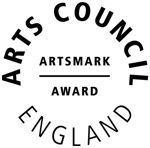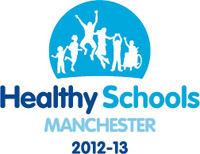Writing (including Handwriting)

How we teach Writing
At Crosslee Primary School, we strive to give our children the best start in establishing secure foundations in writing. We create avid readers, which we believe is the foundation for any great writer. We recognise the importance of nurturing a culture where children take pride in their writing and write clearly and accurately whilst selecting and adapting their language and style to suit a range of contexts, audiences and purposes.
In EYFS our intent is to ensure that all children have the appropriate fine and gross motor skills to increase automaticity in letter formation, reducing cognitive load of letter formation so that children can focus on applying their phonics and building their sentence structure. Communication and language is at the heart of EYFS, a golden thread that links all aspects of learning and allows children to increase vocabulary and formulate ideas for writing.Our intention is to build upon the schemas created in KS1 so that children improve fluency in transcription and further develop their composition skills. Our intent is that children enter KS2 being able to communicate ideas within a range of genres for a variety of audiences and purposes.
By the end of their primary education all of our pupils will be able to speak and write fluently so that they can communicate effectively with a developed awareness of writing for different audiences. In addition, we hope for all children at Crosslee to enjoy writing for different purposes and have a sense of their own authorial voice.
Talk for writing
We deliver English using Pie Corbett’s Talk for Writing approach. By focusing on the oral retelling of various text types in EYFS and KS1, familiar structures become fully embedded in the long-term memory. This approach ensures that children in KS2 can begin to apply these structures to their own writing whilst further developing the language skills and techniques.
Typically, a unit of work will focus on internalisation and contextualisation of the model text; children deepen their understanding of a particular text type. All writing includes a reason, audience, features and tone (RAFT) to give children a purpose to write. Throughout a unit children explore a variety of examples to help bring the RAFT to life through whole class reading and reading as a writer.
EYFS follow the talk for the writing process as a class orally throughout the year. Nursery focus on pre-writing skills such as gross and fine motor skills, scissor skills and pre-handwriting mark making skills. Then the children move on to letter formation and handwriting. Reception focus on word writing in the Autumn term and progress onto lists and captions related to the class text. From Spring, Reception children build on this knowledge and learn to write a multitude of genres including: stories, letters, instructions and recounts. In KS1 and 2, following sessions of deliberate practice, children use short burst writing to develop the writerly tools and receive timely feedback in order to improve. Focusing on the RAFT children then write independently in order to fulfil their planned purpose. Oracy plays an essential role in our curriculum in EYFS, KS1 and KS2. This is fundamental both in English and beyond, meaning children develop as articulate citizens whilst improving their vocabulary and skills in communication.
We believe that children need to develop a secure knowledge base in literacy, following a clear pathway of progression as they advance through the primary curriculum. Unit overviews ensure a model of progression is sustained throughout school, starting in Nursery and continuing to Year 6. In this way, children progressively develop their writing skills ensuring genres are purpousefully spaced across the school and all genres within a year group are taught at least twice per year, creating a mastery approach.
Our long term plans include a range of fiction and non-fiction genres, which are influenced by the core texts and other curriculum areas. When designing our curriculum we have ensured children are building on and making connections to prior knowledge and skills whilst avoiding cognitive overload. Our progression in writing document, along with Pie Corbett’s toolkits, allow for teaching to be pitched at a high level. Model texts we use are high quality and aspirational; they demonstrate the level of writing expected from the children whilst exposing them to a higher standard and a range of writerly tools, specific to the writing focus.





.png)
